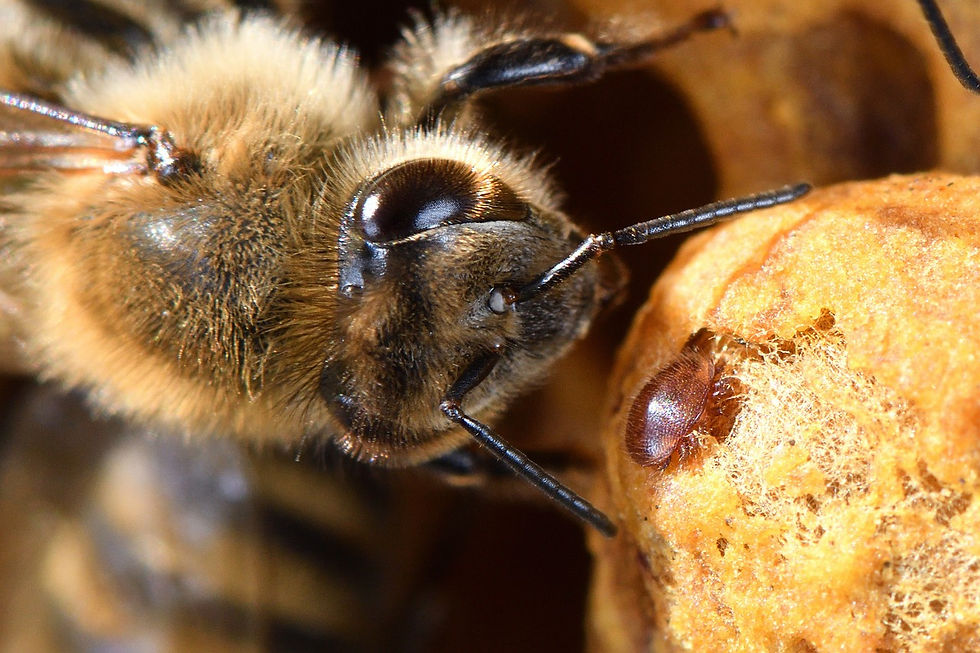Varroa development officers to support WA bee industry
- bicwaorg
- Apr 25, 2024
- 2 min read
DPIRD Media release: 18 April 2024
Specialist varroa mite development officers will work with WA beekeepers to help strengthen biosecurity measures and management to maintain healthy beehives.
The Department of Primary Industries and Regional Development has secured funding for 2.5 full-time equivalent (FTE) varroa development officers as part of the national Transition to Management Plan.
Varroa mite is the most serious pest of European honey bees and was detected for the first time in Australia at the Port of Newcastle (NSW) in June 2022.
Despite an extensive 15-month eradication effort in NSW, it was deemed no longer feasible to eradicate varroa mite from Australia.
The Transition to Management Plan has been developed to slow the spread of varroa mite and minimise its impact on the European honey bee industry and industries that rely on bee pollination.
DPIRD Chief Plant Biosecurity Officer Vincent Lanoiselet said varroa mite was not present in Western Australia, and there were strict border quarantine and surveillance measures in place to reduce the risk of the pest entering and establishing.
“The varroa development officers will focus on training our beekeepers and providing them with the information and skills they need to protect and maintain healthy beehives,” Dr Lanoiselet said.
“Tailored resources are being developed and will be delivered nationally online via a coordinated webinar series, and face-to-face training.”
Dr Lanoiselet said the varroa development officers would also establish and maintain a voluntary varroa mite monitoring program with volunteer beekeepers, beekeeping clubs and societies.
A national pollination industry coordinator will also work with pollination-dependent industries to address concerns, knowledge gaps and future needs related to varroa mite.
Additional assistance and resources will be provided through updates to the Australian Honey Bee Industry Biosecurity Code of Practice and the Bee Biosecurity Manual.
Bee Industry Council of WA (BICWA) Vice Chair Mikey Cernotta said it was the responsibility of WA beekeepers to stay well informed about varroa mite and use best practice biosecurity management for pest and disease prevention.
“BICWA has been steadfast that WA beekeepers need training and education specific to WA needs. Our number one focus must be to remain free of varroa,” he said.
“The varroa development officers will help ensure that WA beekeepers understand the how and why of performing the necessary checks on their hives. This will give WA the best opportunity of remaining varroa free.”
Provided by




Comments